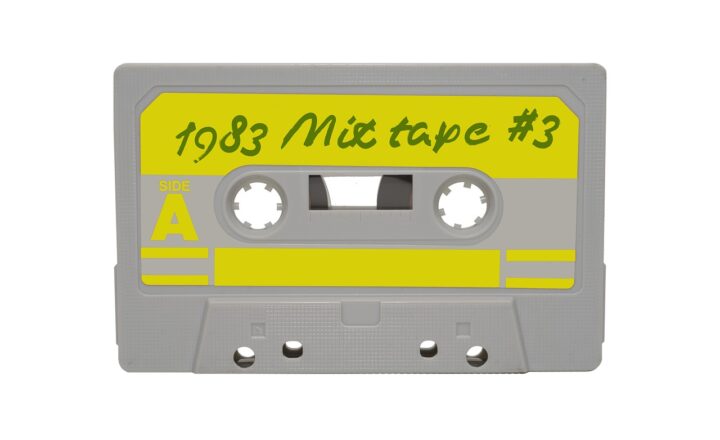Traveling Through Time: The Cultural Impact of 2000s TV Shows We’ve Forgotten
November 19, 2024

The 2000s marked a vibrant era for television, with a surge of groundbreaking series that shaped pop culture, influenced society, and created trends that would linger for years beyond their airtime. While some shows have remained family favorites, others have faded into obscurity despite their immense cultural impact. In this article, we will time-travel through the 2000s, exploring the underrated gems of this era and their role in shaping modern television and society.
1. The Rise of Reality TV:
The dawn of the new millennium saw the rise of reality television as a legitimate genre. Before 2000, shows like ‘The Real World’ and ‘Survivor’ began experimenting with unscripted formats, but it was during the 2000s that reality TV truly exploded. Programs like ‘American Idol’, ‘The Osbournes’, and ‘The Simple Life’ not only entertained audiences but also sparked conversations about celebrity culture, success, and family dynamics.
– **Cultural Impact:** Reality TV shifted perceptions of fame, encouraging individuals to seek celebrity status through non-traditional avenues. Social media began amplifying this phenomenon, allowing fans to engage directly with their favorite stars, something largely absent in previous decades.
2. Breaking Stereotypes with Dramas:
Shows like ‘The O.C.’ and ‘Gilmore Girls’ revolutionized the teen drama landscape, offering portrayals that resonated with a generation facing a rapidly changing world. They tackled themes such as class struggle, family dynamics, and identity, creating relatable narratives for viewers wrestling with their realities.
– **Cultural Impact:** These dramas helped destigmatize issues such as mental health, racism, and sexuality. By weaving complex stories into relatable characters, they encouraged open discussions among young audiences, making significant strides towards inclusivity and representation in television.
3. The Sitcom Evolution:
The 2000s also witnessed an evolution in the sitcom format. Classics like ‘Friends’ faded out while fresh shows like ‘How I Met Your Mother’ and ‘30 Rock’ redefined humor and narrative structure. They introduced clever humor mixed with heartfelt moments that resonated with audiences.
– **Cultural Impact:** These new sitcoms focused more on character development and less on laugh tracks, paving the way for a more nuanced approach to comedy. They influenced later comedies, emphasizing storytelling that blends humor with deeper emotional journeys.
4. The Birth of Binge-Watching:
With the advent of streaming services like Netflix towards the end of the 2000s, the concept of binge-watching began to take root. Shows like ‘The Office’ and ‘Parks and Recreation’ became accessible in their entirety, allowing viewers to consume episodes at their own pace.
– **Cultural Impact:** This shift transformed viewing habits, leading to a generation of viewers accustomed to consuming entire seasons in one sitting. The binge-watching phenomenon significantly influenced show formats, leading to narrative styles that favored longer arcs and developed storylines.
5. Forgotten Gems: An Overview:
Despite the cultural upheaval, several shows remain underappreciated today. Here’s a look at some of the forgotten gems of the 2000s:
– **‘Freaks and Geeks’ (1999-2000):** Although it only aired for one season, this show captured the essence of adolescence in the 80s and gained a cult following that influenced future teen dramas.
– **‘Pushing Daisies’ (2007-2009):** This whimsical series combined elements of mystery and romance, creating a visually stunning narrative that resonated with viewers.
– **‘Dead Like Me’ (2003-2004):** Exploring themes of life, death, and the mundane, this dark comedy challenged societal perceptions of its topics.
These shows may not have experienced long runs, but their originality and unique storytelling left indelible marks on their genres and audiences.
6. Conclusion: More Than Nostalgia
The 2000s produced a wealth of television programming that continues to impact our present-day viewing habits, societal discussions, and the entertainment industry. Even as we move forward, revisiting these shows is essential not only for nostalgia’s sake but for acknowledging the bridges they built towards today’s television landscape. As we ponder on these cultural artifacts, we appreciate their contributions to shaping contemporary media and society.
Through a deeper exploration of these forgotten series, we realize that each show told stories relevant to their time, fostering a connection between viewers and complex themes that shaped a generation. So, let’s celebrate the overlooked magic of 2000s TV and keep the conversation alive about the cultural significance of these shows.






